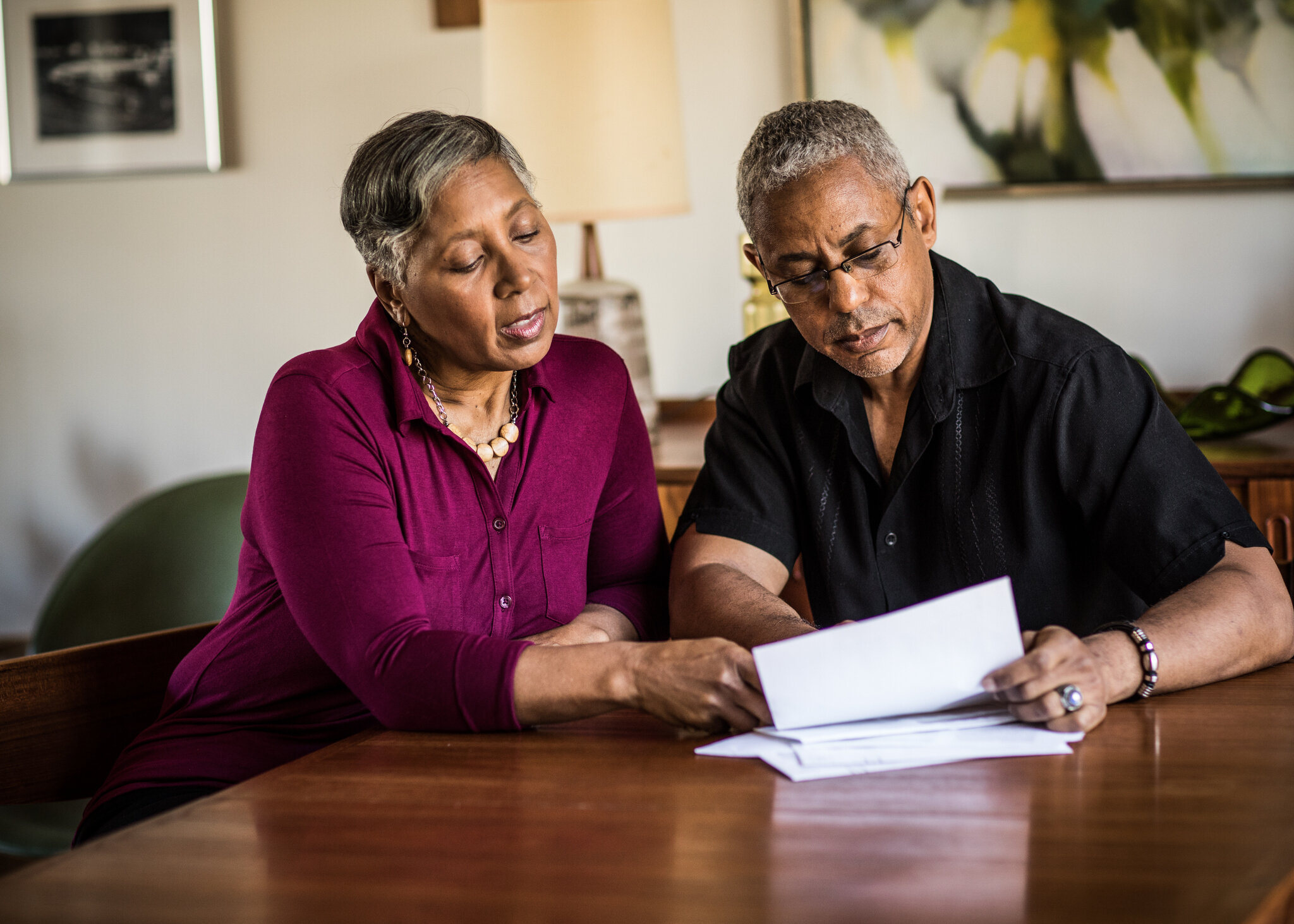Whether it’s from student loans, credit cards, medical bills, or something else, having substantial debt is a reality for many Americans. Depending on how much you’ve accumulated, it can feel impossible to break free from the cycle. We have a few tips to help you start to chip away at your debt and emerge more financially stable on the other side. It may not be quick – but with dedication and focus, you can work toward having a debt-free future.
Frugal Living & Smart Shopping
To pay off debt, you need to have money to put toward it. When your budget is already tight, that may seem like a tall order. Simple, fast ways to free up money and put toward your debt (even just $50 will make a difference!) include living below your means and cutting down on spending. A big pull on your budget besides bills is probably groceries. We have a few extra tips here on how to reduce your grocery bill, but look at each of your spending categories and try to cut it down. This may be a good time to completely do away with entertainment and clothes shopping – not very fun, but it’ll put you ahead in getting the debt that’s keeping you from financial freedom under control.
Pay Your Smallest Debt First
Now down to the nitty-gritty – actually paying the debt. If you have several debts to pay back, start budgeting to pay off the smallest one first. Once that one is gone, use the money you would have spent on the smallest debt on the next smallest, plus any additional money you have leftover now that the first debt isn’t a pull on your finances anymore. Continue paying down your balances like this until they’re gone!
Make More Money
We hate to be blunt, but it’s true. If you’re already living below your means, can’t afford to cut money from existing non-negotiables like rent and frugal groceries, the other option is to make more money. This could happen in a number of ways – if you have the time and ability, pick up a second job. If you work full-time already and can’t do more, try to negotiate for a raise. If that’s not in the cards, research side hustles like driving for a rideshare service. Again, no amount is too small, what matters is consistent payments (more on this later).
Worship Your Budget
Before you can adhere to a budget, you have to make one (more on this here). Once that’s taken care of, stick to it! There’s not a tip, trick, or hack in the world that will help you save or pay off debt if you can’t strictly adhere to your budget. It’s building block #1.
Pare Down & Cash In
Do you have an overflowing closet? What about an attic or basement? Online marketplaces and resell websites have become all the rage, with some people creating full businesses by reselling their own and other people’s lightly used goods. We’re not saying you have to go that far, but if you have sports equipment, electronics, or trendy clothes you’re not going to use, it’s worth cashing these in for a few hundred dollars to put toward your debt.
Keep it Consistent
Here’s the thing – if you make a minimum payment, especially on credit cards, and then let them sit for a few more months, it’ll be like running on a treadmill. That is to say, putting in a lot of effort and not getting anywhere. That’s because you’ll likely just be paying off the interest (and late fees!) and not taking a bite out of the real debt. This is another reason why it’s important to worship your budget. Getting rid of debt isn’t a one-time thing. It has to be something you can replicate month after month until it’s gone or manageable.
Finally, Be Forgiving
Debt happens to most of us, if not all of us. Many times – as in the case of medical debt – it’s not even your fault. But if you did overspend on credit cards or make a financial decision that didn’t end up in your favor, it’s still okay. Forgive yourself for a mistake you may have made and move forward with fixing them. Wallowing in your situation or scolding yourself will only make you feel more helpless. Mistakes happen! Now it’s time to make it right.





